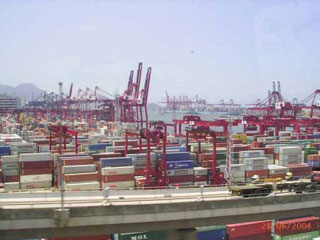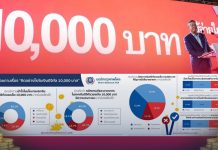BANGKOK, July 11 – The University of the Thai Chamber of Commerce (UTCC) today announced that the nation’s exports in the second half of this year are likely to lose speed as energy prices are tending to rise, affecting production costs, and the global economic recovery has slowed down.
Director Aat Pisanwanich of the UTCC Centre for International Trade Studies said that the Export Composite Leading Index (Export CLI) in May was 100.5, Thailand’s lowest in eight months, and the fourth consecutive monthly drop. It signaled that Thai exports in the third and fourth quarters of this year would decelerate overall.

The centre projected that Thai exports in the third quarter will expand only 11.3-18.1 per cent and export growth in the second half of the year is likely to drop to 6.2-12.9 per cent or US$108-115 billion in export value.
This year’s total export value is likely to stay around $221-229 billion or 13.2-17.3 per cent growth, less than last year’s 28.1 per cent growth.
Factors causing exports in the second half of this year to slow were the decelerating recovery of the global economy and rising crude oil and other energy prices in the second half of the year, which will impact the production and transportation costs of Thai exporters.
However, Thai exports will benefit from the positive impact of increased importation of agricultural products and overall trade expansion among the Association of Southeast Asian Nations (ASEAN) countries. He asked the government to supervise the baht so that it is in line with the market mechanism.
Dr Aat said it assessed that if the new government raises the daily minimum wage to 300 baht (10 US$) and a minimum starting salary for university graduates of Bt15,000 ($500) per month, it will affect the labour cost by 28 per cent and the overall production cost by 3.88 per cent . As a result, the government needs adjust it gradually. If the raise is necessary, the policy should be implemented to affect workers in electric appliances, textiles and food industry sectors.
The government should be cautious in its budget spending on populist policies, as it is an increase financial burden and incurs debt of the country.
The government must more quickly apply the ASEAN free trade framework to benefit Thai exports and to support Thai Small and Medium Enterprises (SMEs) to invest more in ASEAN countries.




